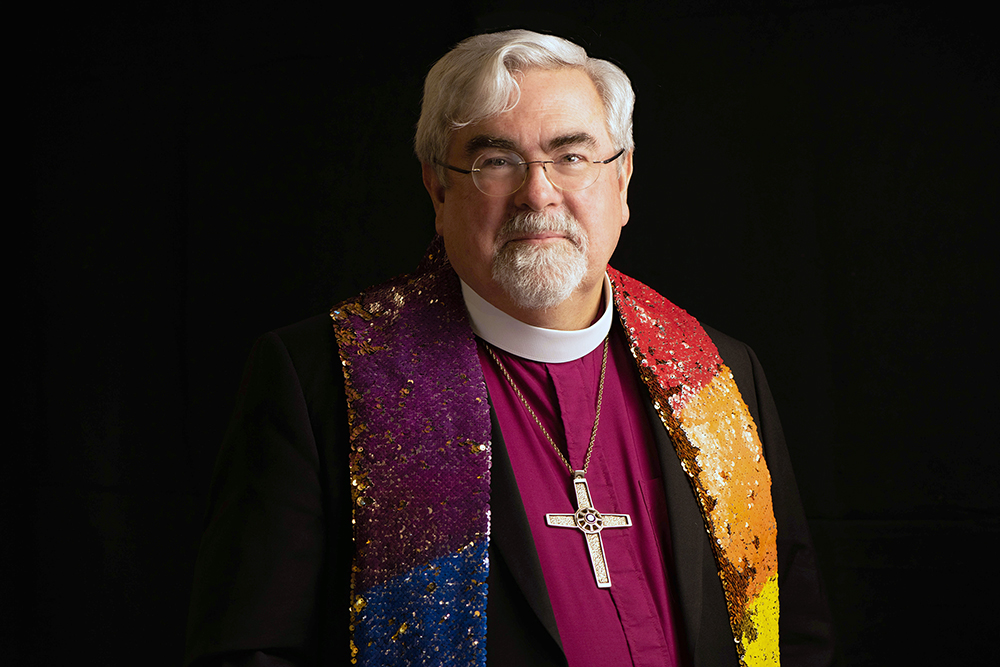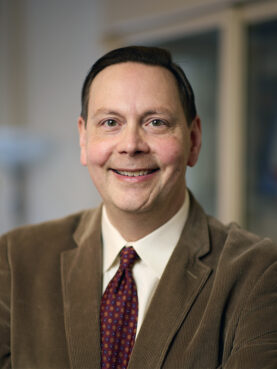(RNS) — If you are on a search committee in a mainline Protestant church looking for a new pastor, or a denominational administrator trying to find Sunday pulpit-supply clergy, you probably already know this:
The clergy job market is a train wreck.
A wave of older clergy will retire in the coming decades, with fewer seminary students in the pipeline to replace them. Those students are likely to find few churches that can afford a full-time pastor of any kind.
Add that the religious landscape is changing and facing serious challenges — where young Americans are increasingly losing interest in organized religion and the majority of believers of all ages, if they go to church at all, are drawn to large congregations; the fallout from polarized politics and a world-wide pandemic — and these are complicated times for aspiring clergy and the people who train them.
“I don’t think any of us understands what’s going on,” said Sarah Drummond, a United Church of Christ minister and founding dean of Andover Newton Seminary at Yale Divinity School.

Sarah Drummond. Photo © Mara Lavitt
“So, it’s a stressful time. But I honestly think one of the reasons it feels so stressful is that we’re really starting to wake up. We’ve been asleep.”
To meet the needs of churches, often ones that cannot afford to pay full-time clergy, mainline denominations are adjusting their strategies for recruiting and training leaders. They include providing lay leaders with more training and authority, encouraging more clergy to have day jobs that support themselves — a trend known as bivocational ministry — or revisiting the way they view ministry itself.
Among those helping train new leaders is Nandra Perry, director of the Iona Collaborative, a mostly online training program based out of the Episcopal Seminary of the Southwest. The Iona Collaborative relies chiefly on virtual instruction and videos to give clergy and lay leaders the skills they need to lead and staff local congregations. That can take place in a diocesan school or through courses geared specifically to support bivocational clergy and the parishes themselves.
Perry herself represents a new breed of leader. A former English professor at Texas A&M University, she left academia to direct the Collaborative and become the vicar of St. Philip’s Episcopal Church in Hearne, Texas, a parish with an average Sunday attendance of 18.

The Rev. Nandra Perry. Courtesy photo
She said Iona’s program can help leaders at small churches in small communities get the training they need to have an effective ministry.
“There are people in small towns all over this country that need to know that they are welcome in God’s Church,” she said. “I wanted to be a part of helping one small church in one small town keep its doors open.”
Leaving academia for the pastorate was a decision she made out of gratitude for the way the church had helped shape her life. She wants to ensure that others have access to that same experience.
“When I lost my faith as a young woman, the Episcopal Church welcomed me in, just as I was, and then loved me back to wholeness over a period of several years,” she said. “I don’t believe that kind of healing power should be limited to the East Coast or to major cities.”
Programs like the Iona Collaborative have sprung up in part because traditional residential programs built around a three-year credential aren’t drawing the candidates they once did.
Data collected by the Association of Theological Schools shows that the number of students enrolled in Master of Divinity degrees — required for ordination in many mainline denominations — is down 9% since 2018.
Over the past few decades, he said, mainline schools have experienced an almost 50% enrollment decline, according to Chris Meinzer, ATS senior director and COO.
Meinzer said there may be an incongruity between what some seminaries are preparing students for and the reality of pastoring a small rural church, or two or three churches, rather than one large one.
Still, the need for trained pastors and leaders remains, said Lee Hinson-Hasty, senior director for theological funds development at the Presbyterian Foundation, which supports students and seminaries.
Finding those leaders, he said, requires keeping an eye out for them in places like local congregations, campus ministries or denominational camps and conference centers.
“It doesn’t take long to find these people, but most of them are never asked. That’s what’s so sad.”

The Rev. R. Guy Erwin. Courtesy photo
Former Evangelical Lutheran Church in America Bishop R. Guy Erwin, now a seminary head, sees part of his current job as helping future clergy adjust to an environment in which there aren’t as many self-sustaining parishes as there once were.
“The problem is not that we have a shortage of pastors,” said Erwin, who currently serves as president of United Lutheran Seminary, a dual-campus school in Philadelphia and Gettysburg, Pennsylvania. “We have a shortage of congregations that can pay a full-time pastor the way they used to.”
Part of the problem facing many denominations, said Darryl Stephens, director of the Pennsylvania Academy of Ministry at Lancaster Theological Seminary and author of “Bivocational and Beyond: Educating for Thriving Multivocational Ministry,” is that there is effectively a “two-tiered system” of ministry.
Most American congregants attend large churches (approximately 7 in 10), in which the minister has extensive educational experience, while the many much smaller churches (also 7 in 10) that have an equal need for clergy likely can’t afford to pay them full-time, said Stephens.
In the Methodist Church, alternative methods of training parish leaders that don’t rely on the Master of Divinity credential are already a reality on the ground. Elaine Heath, former dean of Duke Divinity School, is co-founder of Neighborhood Seminary — a program that offers educational opportunities for lay people.
Heath, a veteran of the older educational model, says she is a fan of Path One, the United Methodist Church’s church planting program, where bivocational pastors and other nontraditional leaders often have opportunities to minister.
“There is a lot of effort and emphasis on equipping people to do alternative forms of new faith communities that are localized, often led by laypeople,” she said.

Steven Sandage. Photo © Dave Green Photography
While mainline denominations assess how to cope with declining enrollments and experiment with different models of parish leadership, some researchers are urging more attention to the students and clergy out there already.
Steven Sandage, a university scholar and research director at the Danielsen Institute at Boston University, has done extensive studies on clergy mental health. He’s concerned about how to support pastoral leaders once they graduate.
“They face even more distress and trauma than they did in seminary,” he said. “I see some seminaries and some religious bodies that seem to be in denial about those realities.”
Still, leaders like Perry are hopeful about the future.
“We’ve got some scrappy little churches that are out there being salt and light in some very inspiring ways,” she said. “I think bishops are in touch with that, and increasingly, with the importance of elevating the ministry of all the baptized, and strong, well-trained, locally formed leaders. It’s an enormous opportunity.”





